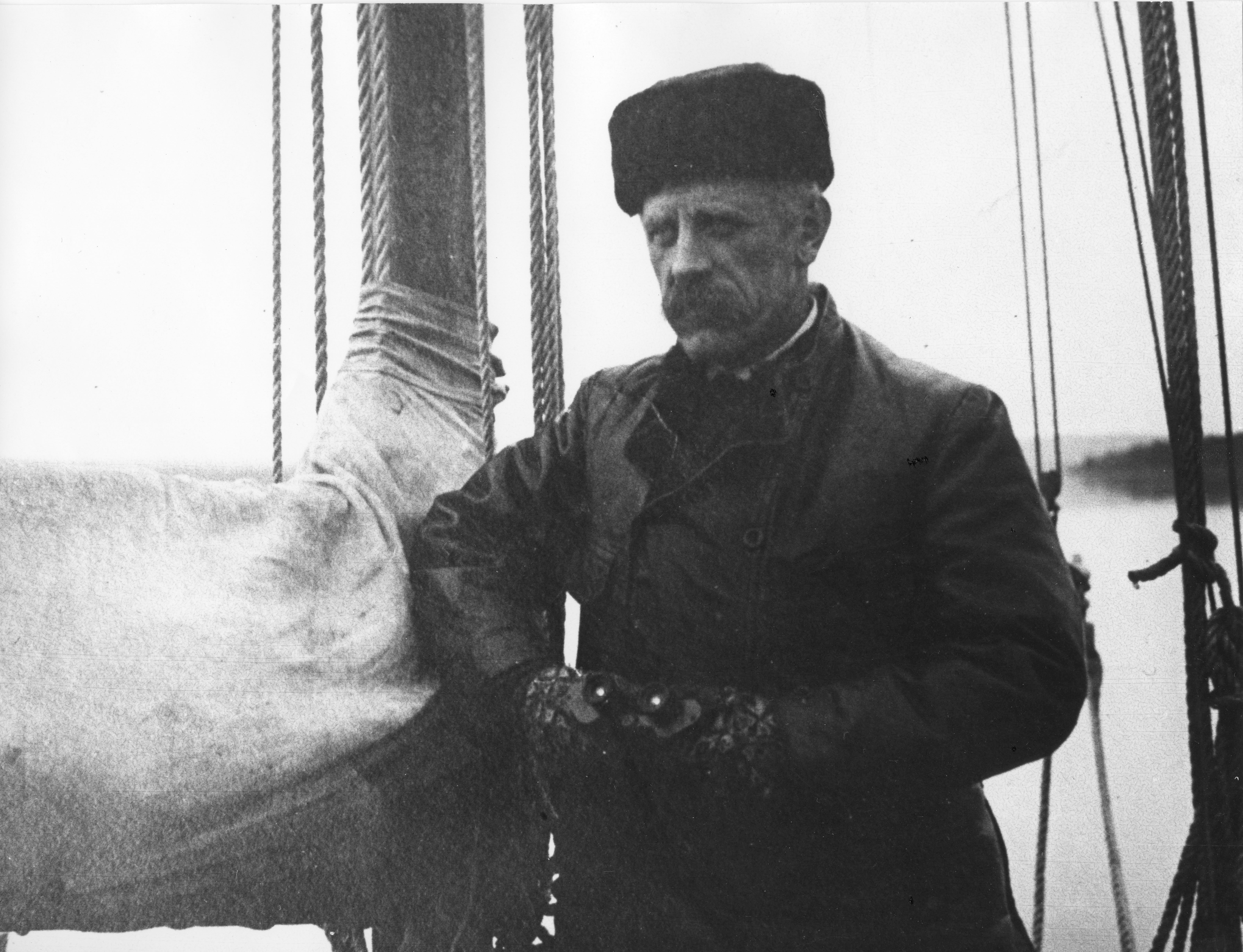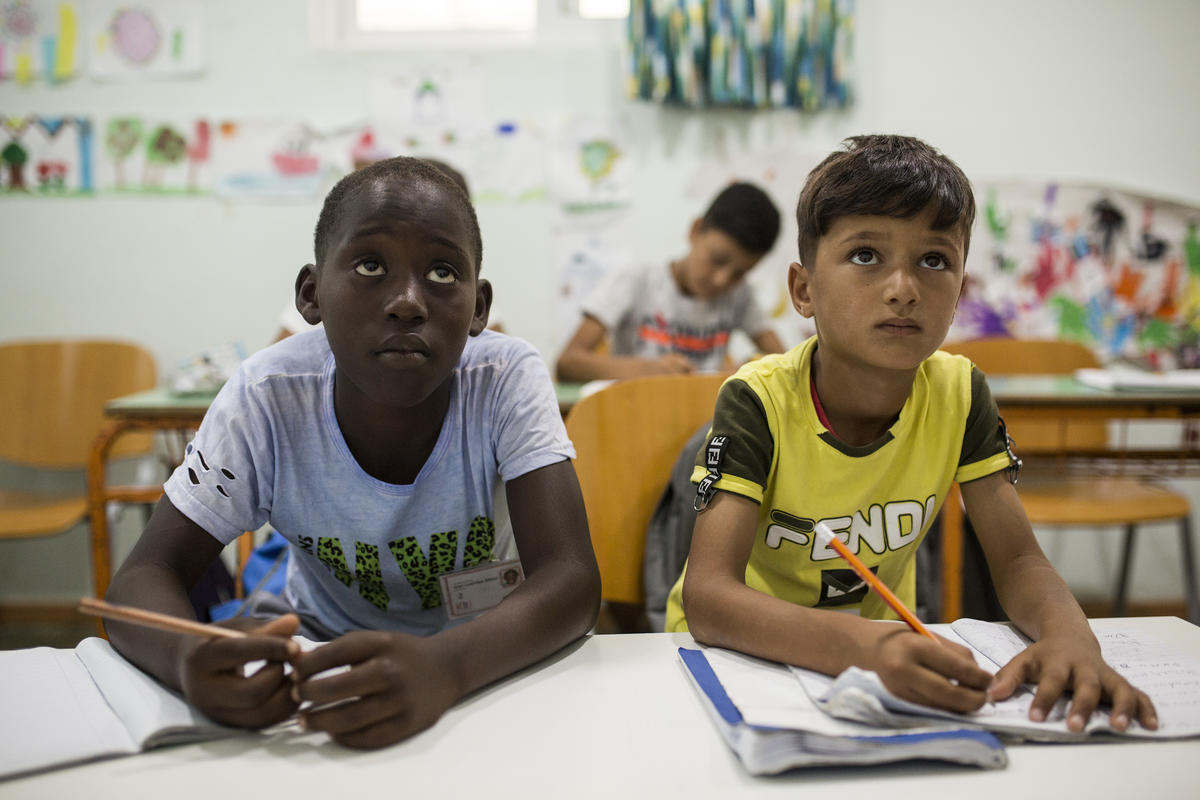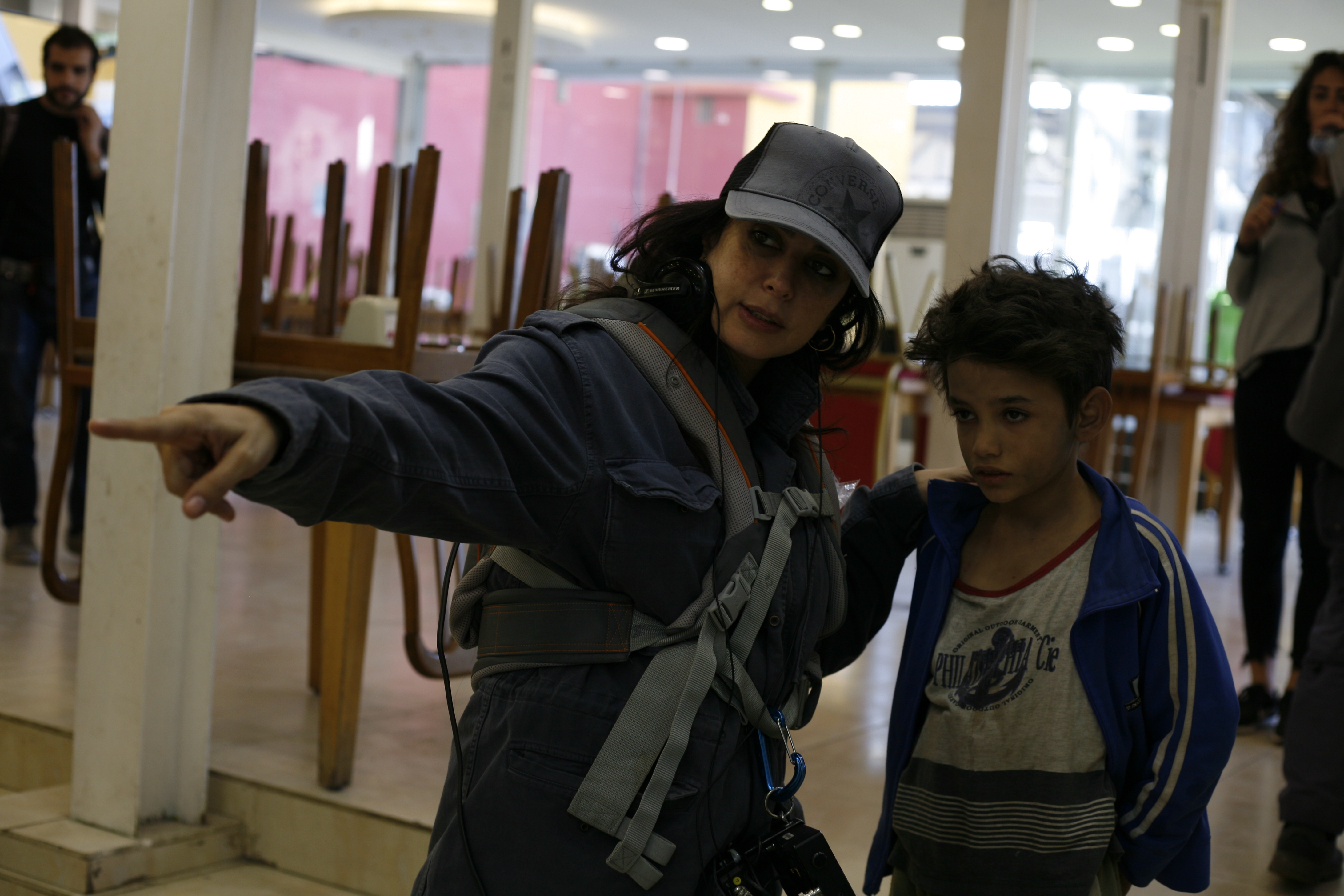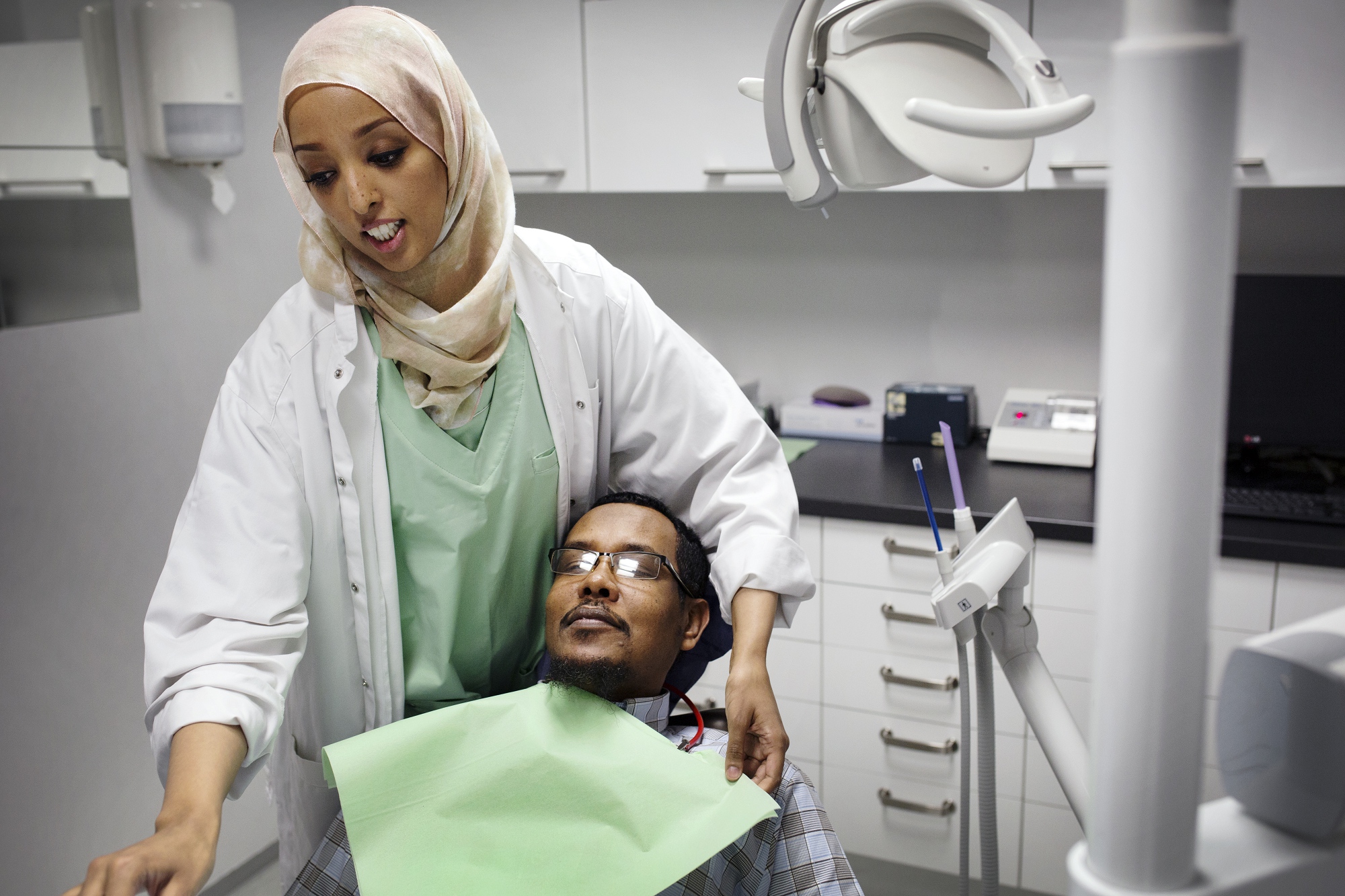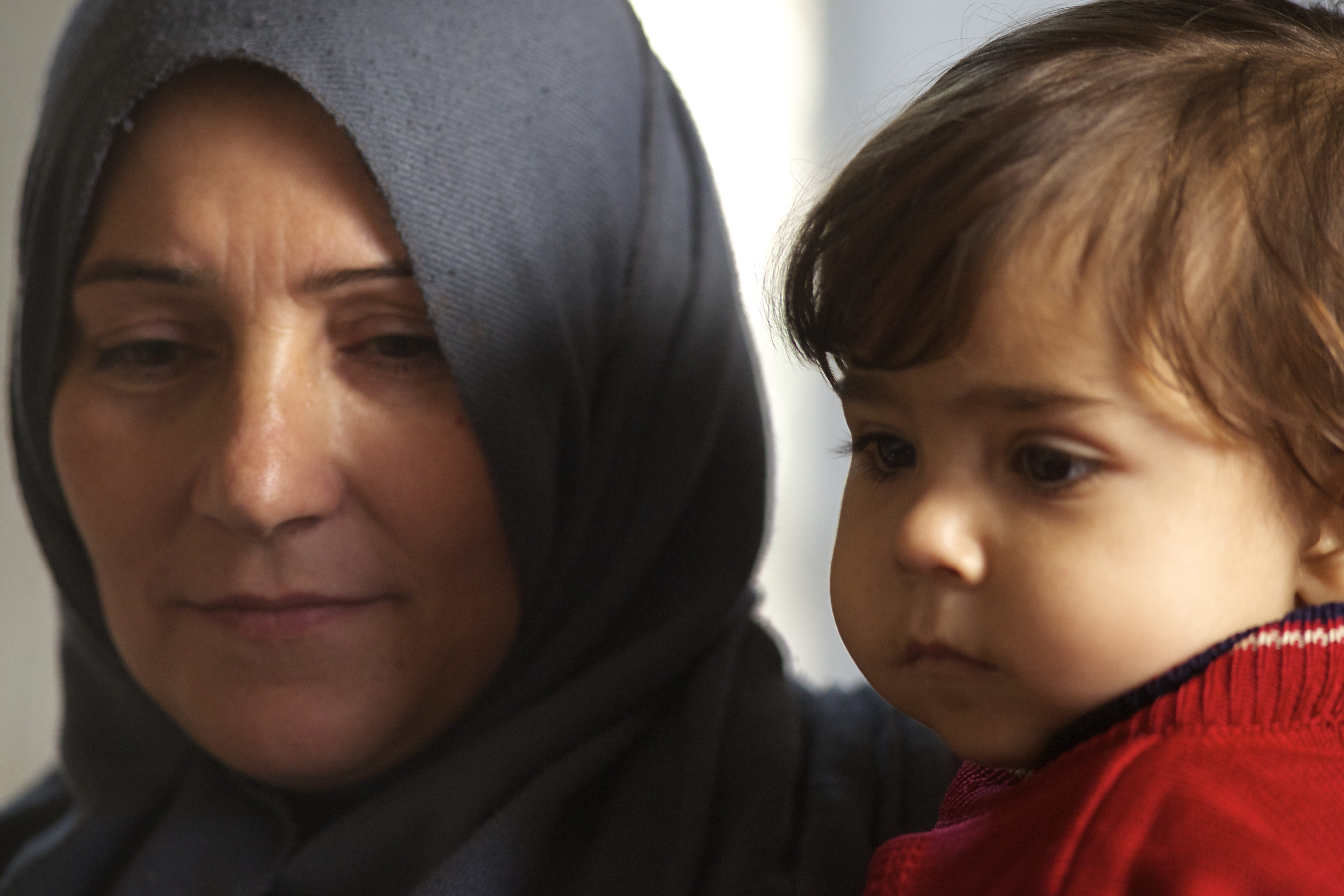Lubbers thanks Norway's Crown Prince and Princess for generous support
Lubbers thanks Norway's Crown Prince and Princess for generous support

GENEVA, September 23 (UNHCR) - A highly unusual wedding gift today brought Norwegian Crown Prince Haakon and his wife, Crown Princess Mette-Marit, to Geneva to meet UN High Commissioner for Refugees Ruud Lubbers and visit other international organisations based in Europe's humanitarian capital.
When the Crown Prince and Princess were married in 2001, Norway's five biggest non-governmental organisations (NGOs) clubbed together to offer the royal couple this visit to Geneva, where several of the world's biggest humanitarian agencies are based, in order to broaden their understanding of how humanitarian work functions around the world.
The two-day visit to Geneva began with a meeting with High Commissioner Lubbers, and staff in the UN refugee agency headquarters lined the balconies to greet the couple's arrival. They were accompanied by the Norwegian Ambassador in Geneva, as well as the Secretary-General and other staff of the Norwegian Refugee Council, one of the five NGOs that came up with the unusual wedding present, and organiser of the Geneva end of the visit.
"I think the visit will increase the focus on humanitarian work in Norway," said Raymond Johansen, Secretary-General of the Norwegian Refugee Council. "At this time, when there is so much focus on war, we believe that there is an even greater need to focus on humanitarian work in order to bring peace. The Crown Prince and Princess will contribute greatly through their interest in these issues."
The High Commissioner praised the extremely important role Norway played in the development of the international refugee system that was developed during the 20th Century, not least in providing the first-ever High Commissioner for Refugees, Fridtjof Nansen - widely regarded as the founding father of the international system for protecting and assisting refugees.
Lubbers also described how UNHCR and the other key building block of the modern refugee system, the 1951 UN Refugee Convention, came into being in the aftermath of World War II, as part of the widespread effort to ensure that the horrors of the two world wars - including the creation of tens of millions of refugees, with no system to care for them - would never be repeated.
Prince Haakon, Princess Mette-Marit and the High Commissioner also discussed current challenges, notably the crisis in Darfur, and the operations in neighbouring Chad, where UNHCR is in charge of an emergency effort to aid some 190,000 people in extremely difficult conditions. Lubbers, who was scheduled to leave on a visit to both locations later in the day, described the extremely important role being played there by NGOs working in partnership with UNHCR, particularly in crucial areas such as drilling for water in the harsh desert environment.
The Crown Prince and Princess and Lubbers also discussed a range of European asylum issues, including the increasingly hostile political environment - despite the sharp fall in the number of asylum seekers coming to Europe - and the challenge of ensuring that refugees and asylum seekers are integrated better into European societies. The High Commissioner also gave a broad outline of UNHCR's new solutions-oriented initiative, known as Convention Plus.
The High Commissioner thanked the royal couple and the people and government of Norway for their consistently generous funding of UNHCR.
"Norway gets the gold medal in Olympic terms and is an example to other countries," said Lubbers.
In 2003, Norway was UNHCR's sixth-largest individual government donor with around $48 million. And on a per capita basis, Norway was easily the world's most generous donor country, giving UNHCR the equivalent of $10.70 per Norwegian citizen. More than a quarter of Norway's funding is unearmarked, which UNHCR finds especially useful since it gives the agency more flexibility to use the money where it's most needed.
After the meeting with the High Commissioner, the royal couple were given a series of briefings by UNHCR staff involved in emergency and security issues, liaison with NGOs, refugee children and the hi-tech mapping service used to assist the work of all those involved in refugee emergencies.
The important role played by Norwegian NGOs, including the Norwegian Refugee Council itself and the Norwegian branch of Rädda Barnen (known internationally as Save the Children), was frequently mentioned. Both agencies have standby agreements whereby they can provide UNHCR with vital specialist staff in as little as 72 hours when a new emergency erupts. The Norwegian government has also focused on helping UNHCR's emergency preparedness by agreeing to host and fund the key bi-annual emergency management training sessions for five years.
"We are very glad that the royal couple accepted this very special wedding gift," said Elisabeth Rasmusson, Resident Representative of the Norwegian Refugee Council in Geneva. "We hope that the visit will further increase the growing interest the Crown Prince and Princess have shown towards humanitarian work over recent years. One purpose of the visit was also to demonstrate the important role the Norwegian NGOs play in the international humanitarian community."

